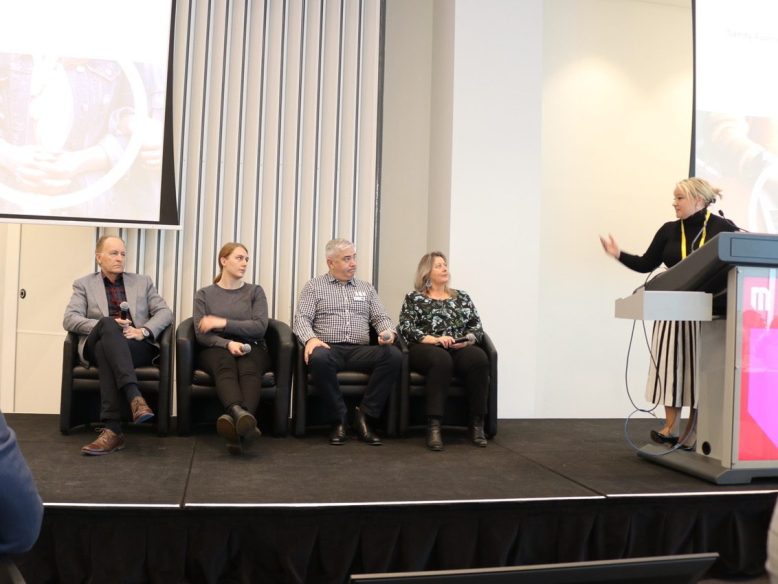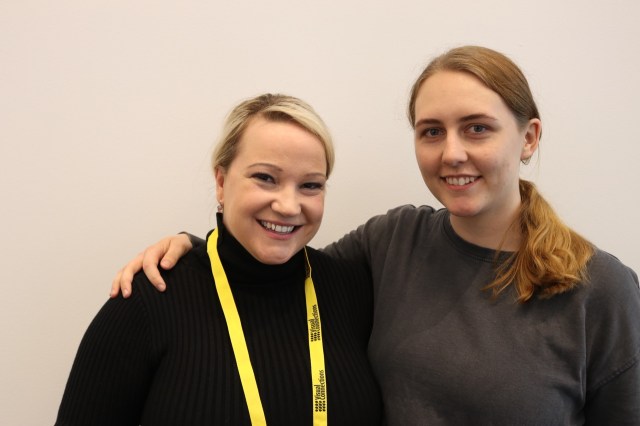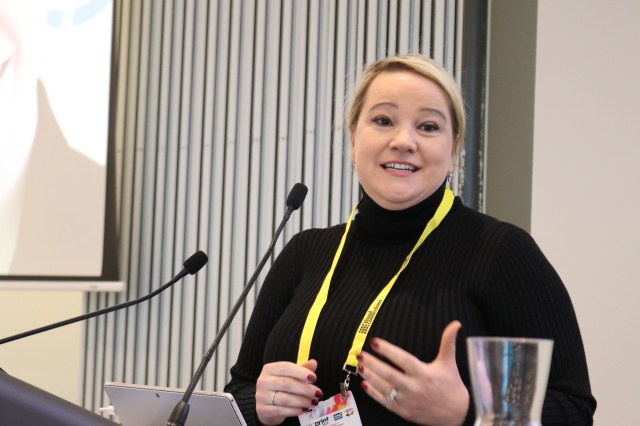
Women in Print held a breakfast briefing during PacPrint with a panel session discussing gender equality in print, a presentation on adopting gender equality and networking opportunities.
Women in Print deputy chair and SA patron Sandy Aspinall, Ball & Doggett national marketing manager and APIA chairman Tony Bertrand, Worldwide Print graphic designer and ProPrint Emerging 50 2021 winner Charlotte Fountain and Ricoh Australia national sales manager Mark Moro led the panel discussion.
According to Bertrand, the stigma that printing is a male-dominated industry needs to change, especially as it faces the challenge of attracting new talent.
“We need to do something about this. One of the challenges that we are facing right now is attracting talent. When you’re looking to attract people to your company, you need to be attractive. So, it’s incumbent on organisations, or the industry, to make sure that they’re setting themselves up for success. And a part of that is to be inclusive and diverse,” he said.
“We need to get to a stage where our industry believes in fairness, in diversity and equality when it comes to their hiring practices.”
Moro said the conversation needs to extend beyond design to other areas of the industry including engineering.
“As a vendor, we’ve got a very ageing population with male dominated techs. Without these techs, we don’t have the right people to work on our equipment. So, we need to pass on these skills to women as well as the younger generation,” he said.
“It’s difficult to fill those positions, but we need to persevere. Otherwise, we just keep putting old people – who are mainly males – on and we’re getting nowhere.”
Aspinall said this results in the need for cross training in the industry and opening up the opportunities in print to both men and women in other sectors.

“Being gender diverse is one thing, but we also have to be open about hiring people from other industries and presenting them with training opportunities. You may find someone from the wider visual communications industry instead of print that may suit the role you’re looking to fill,” she said.
“The industry also needs to be more open in sharing information about this as sharing information results in shared intelligence. Male or female, young or old, and whatever background they come from, there needs to be no bias when it comes to hiring – you need to focus on what knowledge this person brings to your organisation.”
Fountain spoke about her transition from education to working in a company, saying that she did face a few challenges.
“I started applying for jobs prior to me finishing my studies. I knew that I was really under skilled, especially with print work. Coming out of high school, straight to university and into an apprenticeship, I found the teaching style to be very different. An apprenticeship is very hands-on so it was challenging, but a learning curve for me,” she said.
“The gap of print knowledge in university was also huge – we only had four subjects that involved print. So some better structure in universities and TAFE in terms of how the print industry operates is welcome.”
At the breakfast briefing, The Real Media Collective (TRMC) CEO Kellie Northwood also spoke about how businesses can increase their success by adopting gender equality in their workplaces.

“As our industry develops and grows, addressing new challenges and opportunities, the Women in Print dedication to enhancing female employment, inclusion and leadership across our industry provides more than a ‘good thing to do’. It provides increased business success and profitability,” she said.
“In 2014, McKinsey found that companies in the top quartile for gender diversity on their executive teams are 15 per cent more likely to outperform companies in the forth quartile. Following this, in 2017, these numbers increased to 21 per cent likelihood of outperforming fourth-quartile companies.
“Gender diversity also correlates to positive behaviour relating to better organisational health, which is associated with better business performance.”
For the full report on this breakfast briefing, read the July issue of Australian Printer – out soon.
Comment below to have your say on this story.
If you have a news story or tip-off, get in touch at editorial@sprinter.com.au.
Sign up to the Sprinter newsletter
